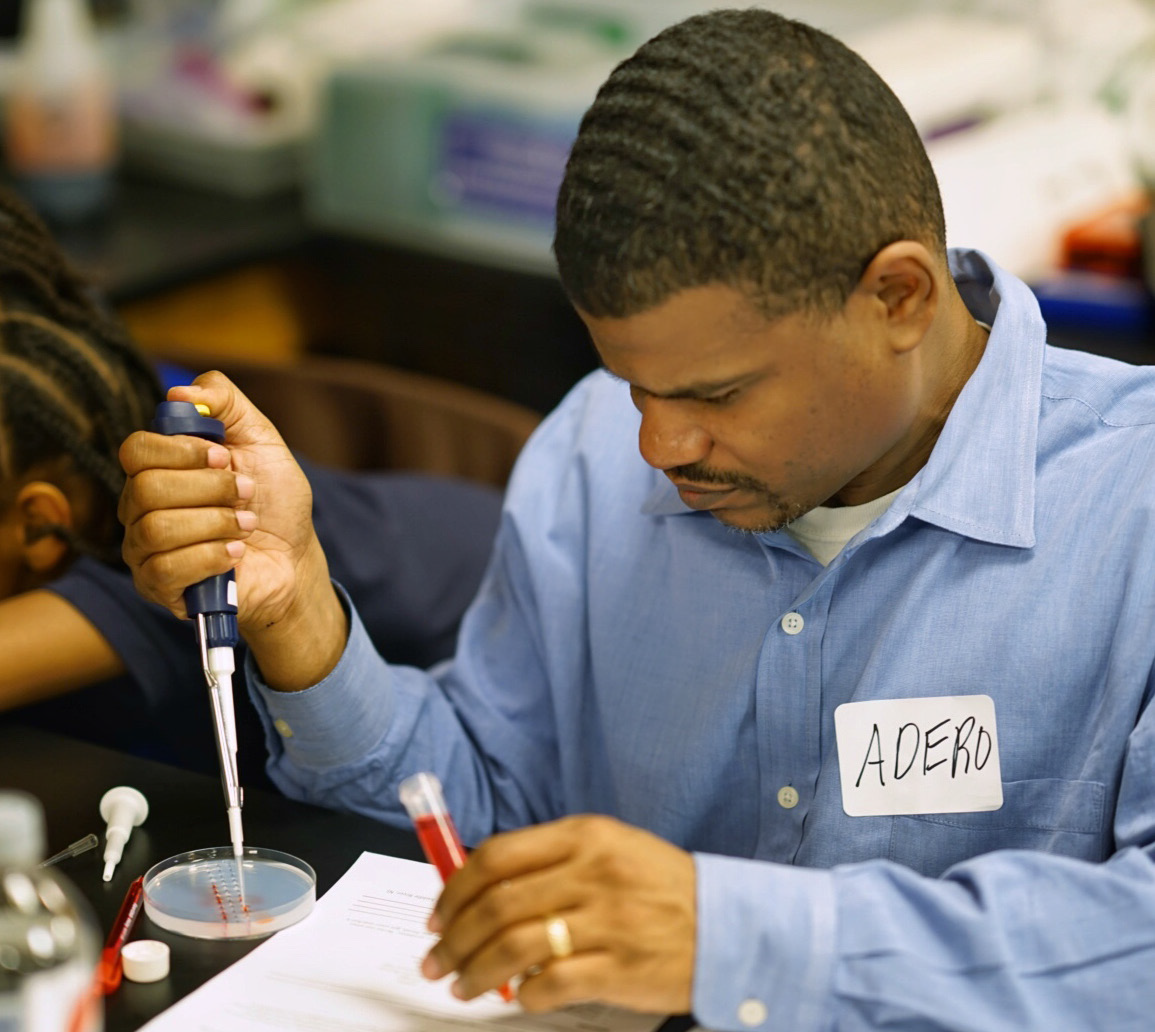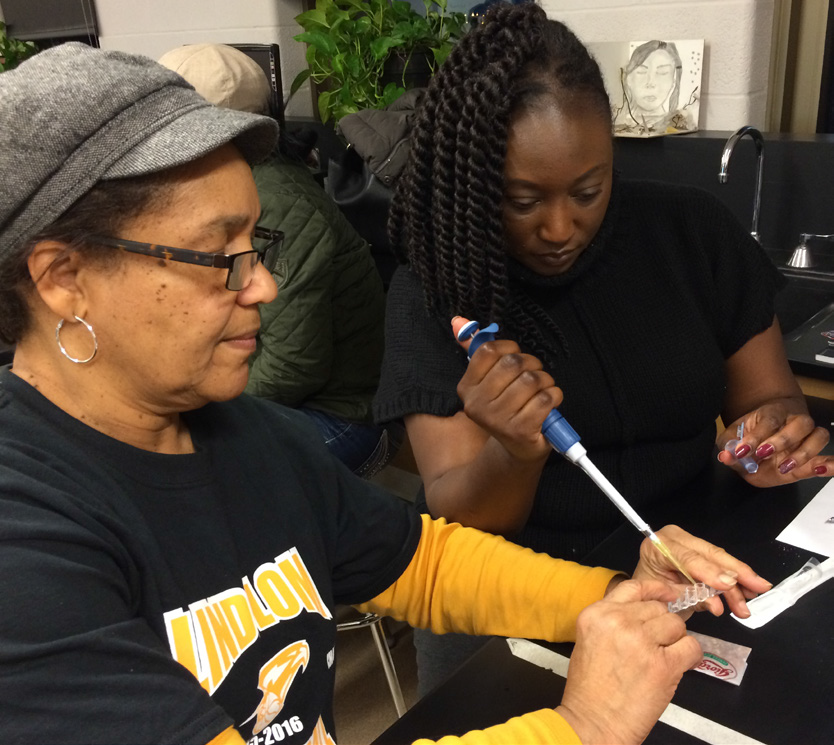About The Baxter Center for Science Education
For Teachers: How We Work
Hear teachers explain how our workshops and Box loaner program work.
For Industry and Academia: Our Partnership Model
Learn how we bring partners together to support quality science education for all.

The Baxter Center for Science Education (BCSE) is a collaborative partnership between the School of Education and Social Policy at Northwestern University, Lindblom Math and Science Academy, Round Lake Area Schools, and the Baxter Foundation, with evolving and responsive expansions to our broader communities of Cook and Lake Counties. The BCSE provides impactful educator professional development (PD) programs, supports meaningful classroom and student STEM experiences, and catalyzes mutually beneficial collaborations within the STEM education ecosystem of Chicagoland. Through these initiatives, the BCSE seeks to promote engagement and confidence in STEM among Chicagoland youth and teachers, and leadership opportunities among Chicagoland teachers.
What We Do
BCSE programs have always been rooted in providing authentic science learning experiences for teachers and students. Over the past few years, we have expanded the structure and content of our programs to reflect the evolving values and goals of our partners and our communities. Our work is guided by four overlapping pillars:
- Authentic Science Content: We’re known for offering hands-on, cutting-edge life science activities in our programmatic offerings.
- Practice & Community: We design our programs to enable participants to enact what they learn, and to learn with and from each other.
- Teacher Leadership: We position and support teachers as professionals, cultivating and supporting teachers as leaders and co-designers of BCSE programs.
- Community Connections: We seek to build greater capacity for all through serving as a connector, matching existing community resources and expertise with needs.
How We Work

-
Elevating Educators
The BCSE is best known for its innovative professional development opportunities for Chicagoland science educators. With programs like the Baxter Center Symposium, Workshops, and Research Experience for Teachers, we aim to engage new teachers and inspire long-time participants with cutting-edge science that can shape the next generation of innovators. -
Supporting Classrooms
The BCSE seeks to ensure that educators have the supplies they need to do meaningful STEM work with students across Chicagoland and aims to support a circular economy of lab supplies and equipment. The Box Program and Lab Grants Program are two major initiatives here. -
Engaging Students, Partner Schools, and Local Communities
The BCSE supports students at our partner schools (Lindblom and Round Lake) in meaningful STEM experiences connected to local STEM opportunities and career pathways. We also work to continuously assess and adapt to community opportunities and needs through collaborating with schools, districts, and other organizations at multiple levels.
Our Reach
Since 2009, we have hosted or collaborated on 260 workshops and trained 4,174 teachers from 448 schools in CPS and the greater Chicagoland area, reaching over approximately 285,000 students.
What Sets Us Apart
We provide comprehensive services to support science education in the classroom. We have learned that to affect real change, you can’t just do PD, you can’t just give away equipment, and you can’t just visit the classroom. To be successful, you have to do all three as a living, responsive, flexible set of programs built on strong relationships with teachers and schools, adjusting to their evolving needs.

